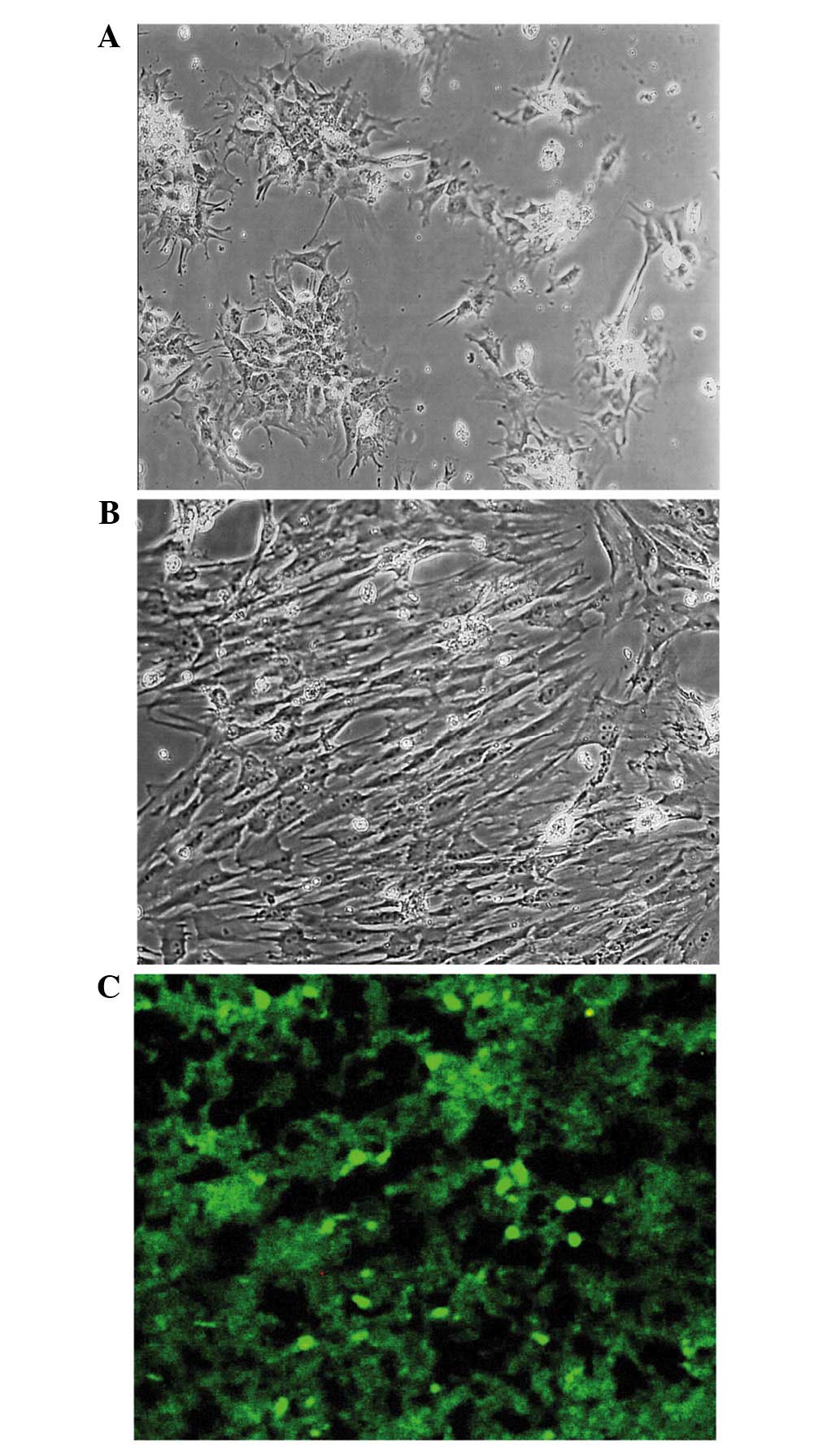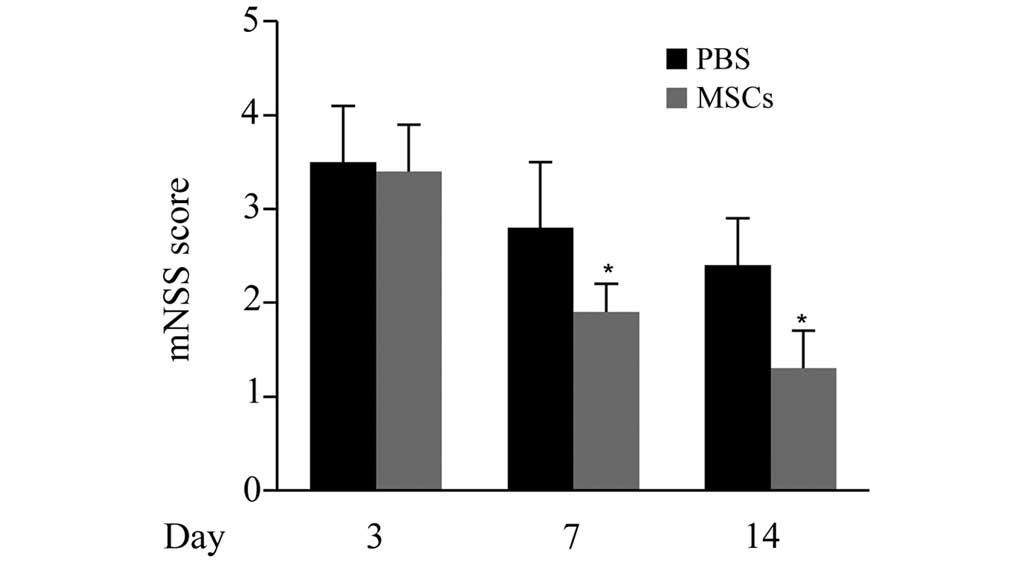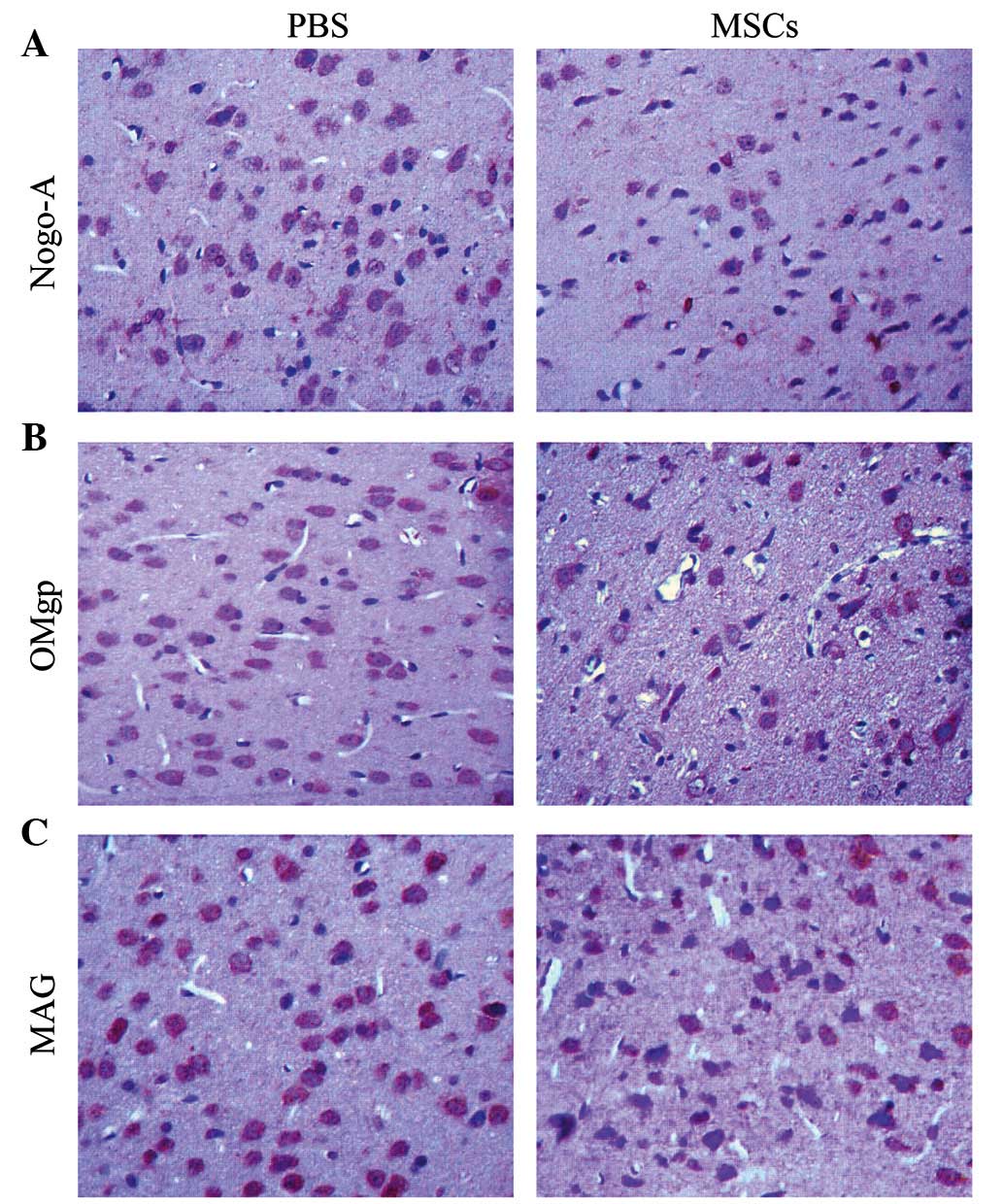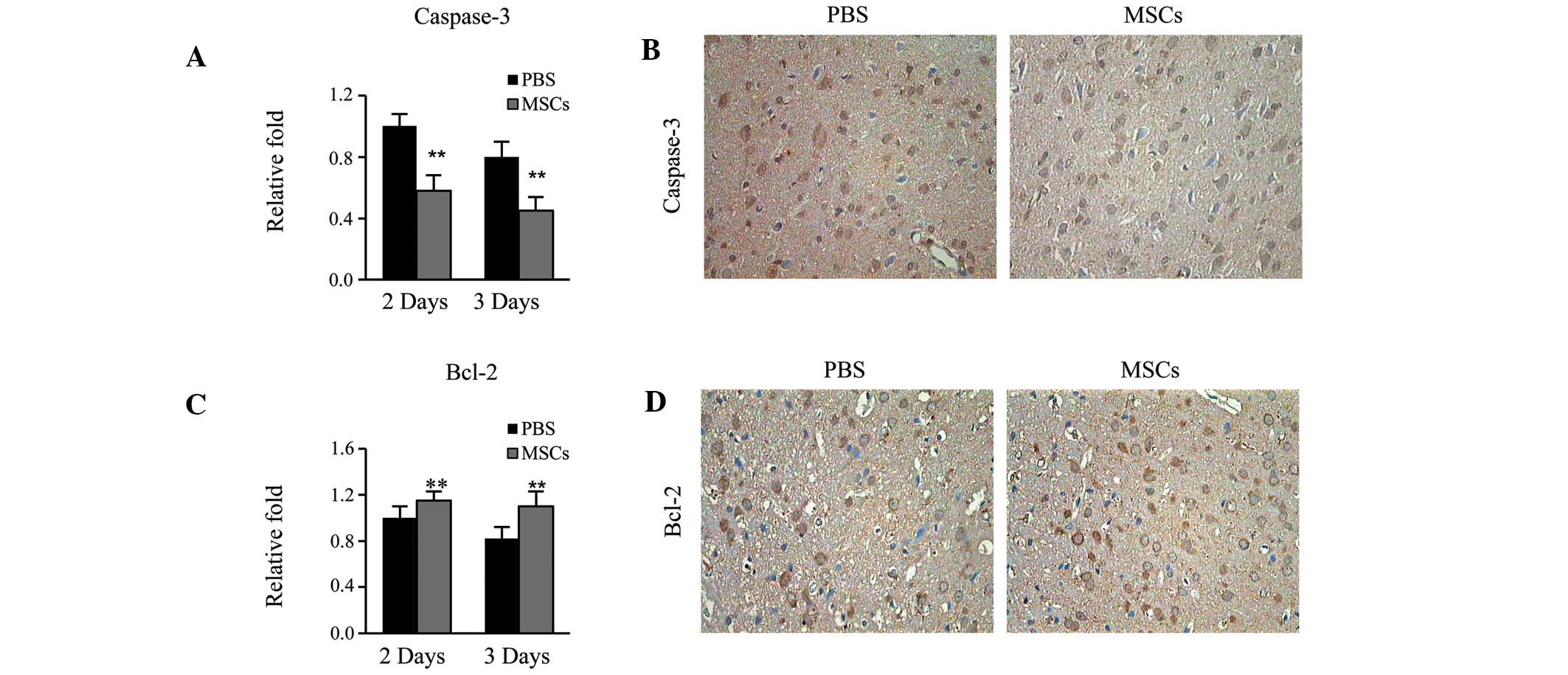|
1
|
DeGracia DJ, Sullivan JM, Neumar RW,
Alousi SS, Hikade KR, Pittman JE, White BC, Rafols JA and Krause
GS: Effect of brain ischemia and reperfusion on the localization of
phosphorylated eukaryotic initiation factor 2 alpha. J Cereb Blood
Flow Metab. 17:1291–1302. 1997. View Article : Google Scholar : PubMed/NCBI
|
|
2
|
Kumar R, Azam S, Sullivan JM, Owen C,
Cavener DR, Zhang P, Ron D, Harding HP, Chen JJ, Han A, et al:
Brain ischemia and reperfusion activates the eukaryotic initiation
factor 2alpha kinase, PERK. J Neurochem. 77:1418–1421. 2001.
View Article : Google Scholar : PubMed/NCBI
|
|
3
|
White BC, Sullivan JM, DeGracia DJ, O'Neil
BJ, Neumar RW, Grossman LI, Rafols JA and Krause GS: Brain ischemia
and reperfusion: Molecular mechanisms of neuronal injury. J Neurol
Sci. 179:1–33. 2000. View Article : Google Scholar : PubMed/NCBI
|
|
4
|
Krumholz HM, Brindis RG, Brush JE, Cohen
DJ, Epstein AJ, Furie K, Howard G, Peterson ED, Rathore SS, Smith
SC Jr, et al: Standards for statistical models used for public
reporting of health outcomes: An American Heart Association
scientific statement from the Quality of Care and Outcomes Research
Interdisciplinary Writing Group: Cosponsored by the Council on
Epidemiology and Prevention and The Stroke Council. Endorsed by the
American College of Cardiology Foundation. Circulation.
113:456–462. 2006. View Article : Google Scholar : PubMed/NCBI
|
|
5
|
Eglitis MA, Dawson D, Park KW and
Mouradian MM: Targeting of marrow-derived astrocytes to the
ischemic brain. Neuroreport. 10:1289–1292. 1999. View Article : Google Scholar : PubMed/NCBI
|
|
6
|
Prockop DJ: Marrow stromal cells as stem
cells for continual renewal of nonhematopoietic tissues and as
potential vectors for gene therapy. J Cell Biochem. (Suppl 30–31):
284–285. 1998. View Article : Google Scholar
|
|
7
|
Pittenger MF, Mackay AM, Beck SC, Jaiswal
RK, Douglas R, Mosca JD, Moorman MA, Simonetti DW, Craig S and
Marshak DR: Multilineage potential of adult human mesenchymal stem
cells. Science. 284:143–147. 1999. View Article : Google Scholar : PubMed/NCBI
|
|
8
|
Eglitis MA and Mezey E: Hematopoietic
cells differentiate into both microglia and macroglia in the brains
of adult mice. Proc Natl Acad Sci USA. 94:4080–4085. 1997.
View Article : Google Scholar : PubMed/NCBI
|
|
9
|
Chen J, Li Y, Wang L, Lu M, Zhang X and
Chopp M: Therapeutic benefit of intracerebral transplantation of
bone marrow stromal cells after cerebral ischemia in rats. J Neurol
Sci. 189:49–57. 2001. View Article : Google Scholar : PubMed/NCBI
|
|
10
|
Zhao LR, Duan WM, Reyes M, Keene CD,
Verfaillie CM and Low WC: Human bone marrow stem cells exhibit
neural phenotypes and ameliorate neurological deficits after
grafting into the ischemic brain of rats. Exp Neurol. 174:11–20.
2002. View Article : Google Scholar : PubMed/NCBI
|
|
11
|
Honmou O, Onodera R, Sasaki M, Waxman SG
and Kocsis JD: Mesenchymal stem cells: Therapeutic outlook for
stroke. Trends Mol Med. 18:292–297. 2012. View Article : Google Scholar : PubMed/NCBI
|
|
12
|
Xie F and Zheng B: White matter inhibitors
in CNS axon regeneration failure. Exp Neurol. 209:302–312. 2008.
View Article : Google Scholar : PubMed/NCBI
|
|
13
|
Grados-Munro EM and Fournier AE:
Myelin-associated inhibitors of axon regeneration. J Neurosci Res.
74:479–485. 2003. View Article : Google Scholar : PubMed/NCBI
|
|
14
|
Schwab ME: Nogo and axon regeneration.
Curr Opin Neurobiol. 14:118–124. 2004. View Article : Google Scholar : PubMed/NCBI
|
|
15
|
Prinjha R, Moore SE, Vinson M, Blake S,
Morrow R, Christie G, Michalovich D, Simmons DL and Walsh FS:
Inhibitor of neurite outgrowth in humans. Nature. 403:383–384.
2000. View
Article : Google Scholar : PubMed/NCBI
|
|
16
|
Domeniconi M, Cao Z, Spencer T,
Sivasankaran R, Wang K, Nikulina E, Kimura N, Cai H, Deng K, Gao Y,
et al: Myelin-associated glycoprotein interacts with the Nogo66
receptor to inhibit neurite outgrowth. Neuron. 35:283–290. 2002.
View Article : Google Scholar : PubMed/NCBI
|
|
17
|
Vourc'h P and Andres C: Oligodendrocyte
myelin glycoprotein (OMgp): Evolution, structure and function.
Brain Res Brain Res Rev. 45:115–124. 2004. View Article : Google Scholar : PubMed/NCBI
|
|
18
|
Lipton P: Ischemic cell death in brain
neurons. Physiol Rev. 79:1431–1568. 1999.PubMed/NCBI
|
|
19
|
Mattson MP and Chan SL: Calcium
orchestrates apoptosis. Nat Cell Biol. 5:1041–1043. 2003.
View Article : Google Scholar : PubMed/NCBI
|
|
20
|
Mohan S, Abdul AB, Abdelwahab SI,
Al-Zubairi AS, Sukari MA, Abdullah R, Taha Elhassan MM, Ibrahim MY
and Syam S: Typhonium flagelliforme induces apoptosis in CEMss
cells via activation of caspase-9, PARP cleavage and cytochrome c
release: Its activation coupled with G0/G1 phase cell cycle arrest.
J Ethnopharmacol. 131:592–600. 2010. View Article : Google Scholar : PubMed/NCBI
|
|
21
|
Cleary ML, Smith SD and Sklar J: Cloning
and structural analysis of cDNAs for bcl-2 and a hybrid
bcl-2/immunoglobulin transcript resulting from the t(14;18)
translocation. Cell. 47:19–28. 1986. View Article : Google Scholar : PubMed/NCBI
|
|
22
|
Otake Y, Soundararajan S, Sengupta TK, Kio
EA, Smith JC, Pineda-Roman M, Stuart RK, Spicer EK and Fernandes
DJ: Overexpression of nucleolin in chronic lymphocytic leukemia
cells induces stabilization of bcl2 mRNA. Blood. 109:3069–3075.
2007.PubMed/NCBI
|
|
23
|
Longa EZ, Weinstein PR, Carlson S and
Cummins R: Reversible middle cerebral artery occlusion without
craniectomy in rats. Stroke. 20:84–91. 1989. View Article : Google Scholar : PubMed/NCBI
|
|
24
|
Livak KJ and Schmittgen TD: Analysis of
relative gene expression data using real-time quantitative PCR and
the 2(−Delta Delta C(T)) Method. Methods. 25:402–408. 2001.
View Article : Google Scholar : PubMed/NCBI
|
|
25
|
Salgado AJ, Sousa JC, Costa BM, Pires AO,
Mateus-Pinheiro A, Teixeira FG, Pinto L and Sousa N: Mesenchymal
stem cells secretome as a modulator of the neurogenic niche: Basic
insights and therapeutic opportunities. Front Cell Neurosci.
9:2492015. View Article : Google Scholar : PubMed/NCBI
|
|
26
|
Zhang H, Wu F, Kong X, Yang J, Chen H,
Deng L, Cheng Y, Ye L, Zhu S, Zhang X, et al: Nerve growth factor
improves functional recovery by inhibiting endoplasmic reticulum
stress-induced neuronal apoptosis in rats with spinal cord injury.
J Transl Med. 12:1302014. View Article : Google Scholar : PubMed/NCBI
|
|
27
|
Johnson JE, Barde YA, Schwab M and Thoenen
H: Brain-derived neurotrophic factor supports the survival of
cultured rat retinal ganglion cells. J Neurosci. 6:3031–3038.
1998.
|
|
28
|
Chen J, Li Y, Wang L, Zhang Z, Lu D, Lu M
and Chopp M: Therapeutic benefit of intravenous administration of
bone marrow stromal cells after cerebral ischemia in rats. Stroke.
32:1005–1011. 2001. View Article : Google Scholar : PubMed/NCBI
|
|
29
|
Chen Q, Long Y, Yuan X, Zou L, Sun J, Chen
S, Perez-Polo JR and Yang K: Protective effects of bone marrow
stromal cell transplantation in injured rodent brain: Synthesis of
neurotrophic factors. J Neurosci Res. 80:611–619. 2005. View Article : Google Scholar : PubMed/NCBI
|


















